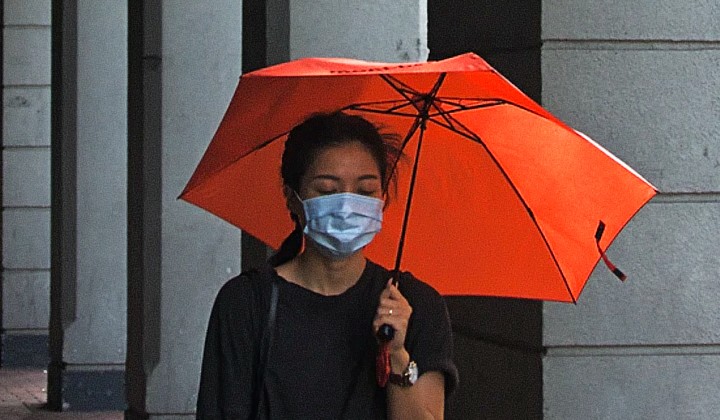COVID-19: Malaysia Worst-Hit Country In SEA

It looks like the COVID-19 pandemic is seeing situations around the world go from somewhat bad, to possibly worse.
Over the weekend, Malaysia reported a jump in COVID-19 infections when 190 new people tested positive for the virus.
This latest cluster of infections is the highest daily spike recorded in the country so far, making Malaysia the worst-hit nation by the coronavirus in Southeast Asia and moves the nation from its previous “early containment stage†to the now “late containment stageâ€.
According to the Health Ministry (MOH), the majority of these new cases were related to an Islamic religious gathering which took place in Kuala Lumpur earlier this month that apparently had an audience of 16,000 locals and foreigners.

MOH had already identified some 70 patients connected to the mass gathering and are making efforts to track down the event’s participants and have them tested.
The country now has 428 recorded coronavirus cases, with zero reported deaths and a total of 42 people already having recovered from the disease.
Across the world, more than 160,000 COVID-19 patients have been identified, 70,000 people have already recovered, and more than 6,000 souls had been lost from infections, as of the time of writing.
#COVIDー19 Statistik terkini WHO dikemaskini 8am, 16 Mac 2020.
— KKMPutrajaya (@KKMPutrajaya) March 16, 2020
Kematian di Itali hampir mencecah 2,000 dan Sepanyol, kematian meningkat ketara menghampiri 300 orang.
Filipina, walaupun jumlah kes 140, kematian agak tinggi (11) dgn kadar kematian 7.9%. pic.twitter.com/2RP9Bygj2e
Meanwhile, the global viral outbreak sees governments, corporation and the general public at large taking extra steps to prevent its spread.
Just last week, Prime Minister Tan Sri Muhyiddin Yassin announced restrictions on public gatherings, events, and celebrations in Malaysia and banned any form of public assembly which involves more than 250 people.
The ban is to stay in effect until the end of April or when the authorities see the situation improving enough to remove it.
Reportedly, Malaysia’s Department of Islamic Development (Jakim) will also be issuing an advisory for the country’s mosques and Islamic houses of worship to cancel public prayers and religious activities for a period of 10 days following a string of new infections in the country.
View this post on InstagramA post shared by Dr MAZA (@drmaza_official) on
Meanwhile, several experts and organizations were also urging the government to implement a national “lockdown†or a state of emergency with the objective to contain the spread before the situation regrettably worsens.
Simultaneously, COVID-19 has inevitably interfered with our daily lives and activities.
Apart from the limited supply of protective facial masks and increasingly expensive hand sanitizers, a poll conducted by Astro Awani showed that a majority of Malaysians were actively “social distancing†themselves and limiting their outdoor activities and travel due to fears of infection.
Cuti sekolah berlangsung selama seminggu, apakah perancangan anda di sebalik penularan #COVID19?
— 🇲🇾Astro AWANI🇲🇾 (@501Awani) March 15, 2020
Caution from coronavirus has also resulted in several local colleges and universities limiting student activities and even opting to temporarily cancel classes in favor of online lectures, while the National Science Centre temporarily shut its doors in light of the viral outbreak.
Over in East Malaysia, the Sarawak state government is looking to extend the school holidays, which is supposed to end on March 13, to March 21.
The state is also considering to call on the private sector to allow employees to work from home while temporarily closing down mosques and places of worship across the state as a measure to counter the spread of COVID-19.
Overseas, COVID-19 sees nations tightening protocols and activates emergency procedures to battle against the coronavirus.
Singapore reportedly installed stricter travel restrictions to limit travelers from ASEAN nations, except for Malaysia. And Indonesia stopped collecting income taxes from its citizens working in the manufacturing industry for the next 6 months as a way to relieve the burdens of the working class as well as to protect the nation’s economy from weakening due to COVID-19.
In Australia, fear and panic over the coronavirus pandemic caused quite a stir in the outback as Australians raided grocery stores and supermarkets in a string of panic-buying behavior that got the best of some of the country’s citizens.
#Australia: Toilet paper shortage from #coronavirus panic buying sees argument break out at Woolworths in #Sydney pic.twitter.com/syVGXx3jqA
— African Protocol (@africaproto) March 7, 2020
Over in Europe, the World Health Organisation (WHO) had declared the region as an epicenter for the coronavirus pandemic as China reports a slowdown in infections and with Italy and other neighboring countries recording spikes in COVID-19 cases.
Chinese medical workers who have been fighting the #coronavirus day and night in Wuhan celebrated the closing of the last temporary hospital in Wuhan.
— redfish (@redfishstream) March 13, 2020
The reported #covid19 cases went from a surge in February of 15,000 in one day to only 15 this week. pic.twitter.com/xWuPd23EfY
Italy became the first country in the region to declare a state of emergency following more than 6,000 reported infections, with Spain and France implementing similar public lockdown measures to curb the spread of the virus.
Oh to be in quarantine from my balcony in Italy singing LORDE pic.twitter.com/GYxZsuuJI8
— ☆nab☆ (@9naby99) March 15, 2020
Meanwhile, in the Americas. Cities in the United States (U.S) announced measures not only to limit public gatherings and activities but is also ordering restaurants, bars and theatres to close down and only continue to serve customers through take-out and deliveries.
While Mexico, in an impressive turn of events, is considering to restrict its borders to control the flow of people entering the country from the U.S in a bid to prevent the spread of COVID-19.
Tune in to TRP to catch more info and updates on the COVID-19 pandemic and share with us your thoughts on our Facebook, Twitter, and Instagram.
Typing out trending topics and walking the fine line between deep and dumb.





